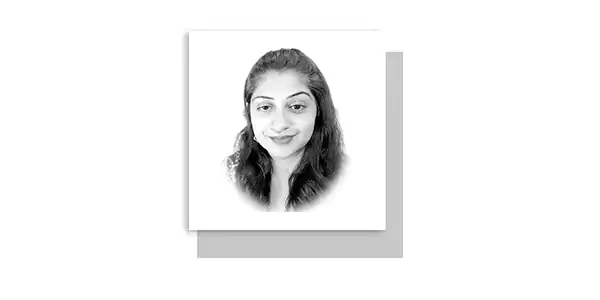IN the realm of today’s entertainment buzz, a striking trend emerges: the spotlight often falls on powerful men asserting their physical prowess as if it’s a badge of honour. It’s a narrative that’s hard to miss, one where justification too often trumps accountability. There have been some definite recent incidents that have left us stunned. First, a video surfaced of singer Bilal Saeed hurling his mic into a crowd mid-performance, leaving his bandmates in confusion. Then, another video emerged allegedly showing musician Rahat Fateh Ali Khan physically abusing a student over a missing ‘bottle’. And to add to the distress, accusations of marital mistreatment surfaced against newscaster Ashfaque Ishaw Satti, with disturbing images circulating online.
January was undoubtedly eventful, shedding light on the dynamics of social media where transparency reigns supreme. The shocking display of a man’s aggression captured on camera was just the tip of the iceberg. What followed was even more troubling: the flood of justification posts that ensued. Saeed justified his actions by citing past encounters with unruly crowds but acknowledged he shouldn’t have lost his composure this time.
This narrative paints his violent outburst as a triggered response, normalizing such retaliation, or at the very least suggesting what happened can happen. Likewise, Rahat Fateh Ali Khan’s video depicting him using excessive force on his purported student might have lessened in impact had the singer not released a cringe worthy video justifying that a teacher who cares for his student may exhibit aggression if necessary, implying it’s a reciprocal relationship.
In the whirlwind of celebrity accusations, it seems any subsequent actions they may take afterward might just fade into the background, subtly brushed aside and overlooked. And therein lies the crux of the issue – taking responsibility for our actions and confronting justified scrutiny head-on. Recent studies on both genders have revealed that men are more likely to display physical aggression, while women tend to lean towards verbal forms of expression. Rahat Fateh Ali Khan- a name of musical ingenuity has been subjected to mockery and ridicule over his choice of actions; of how he felt it was okay to beat a grown man so viciously. No matter how much wealth, fame, and influence one may acquire, adopting a sense of superiority over others is deeply troubling. Your fan base stems from your talent and entertainment value; it’s an appreciation of your abilities, not a license to belittle others. The term “male ego” often carries connotations of judgmental superiority and a need to flaunt one’s status. Psychiatrists have studied and found that men with inflated egos are easily bruised, and the more powerful a man is, the larger and more fragile his ego tends to be. While this may not be true for everyone, it’s clear that the sphere of influence can occasionally deviate into a downward spiral. In times of profound distress, when we witness singers losing their temper over minor inconveniences or influential figures excusing domestic violence as ‘normal’ in relationships, it’s evident that change is imperative.
Societies cannot advance, and we cannot break free from the constraints of narrow-mindedness and limited influence to enact meaningful change until we prioritize internal transformation.
Influential men bear a significant responsibility; they are role models, and setting a positive example is essential for society to thrive at its best. It’s natural to experience emotions, and at times, they may overpower us. However, channeling them constructively is key to societal progress. Acknowledging your mistakes sets the stage for a society grappling with challenges but committed to fostering positive change.
—The writer is contributing columnist, based in Islamabad.
Email: [email protected]
views expressed are writer’s own.










